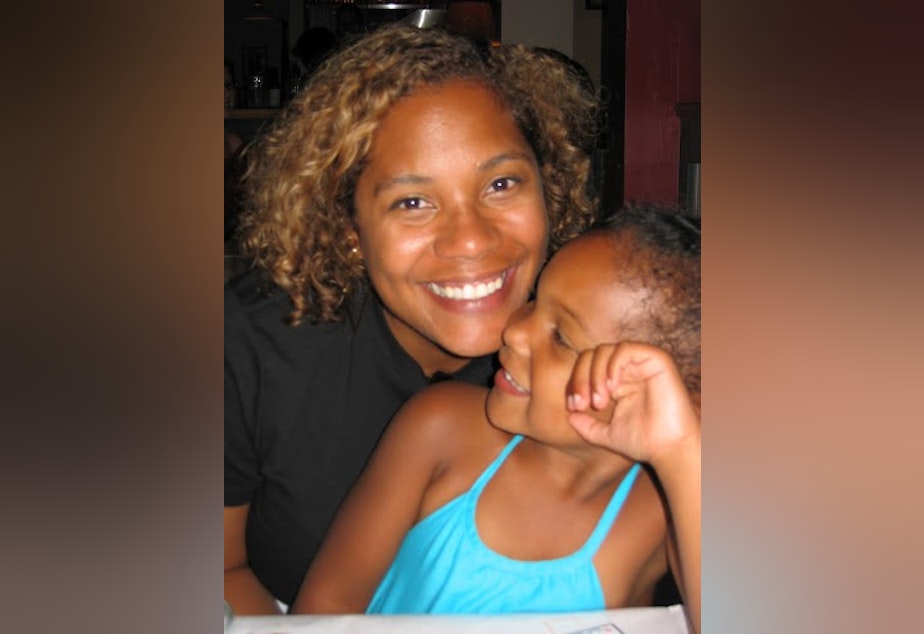After racist attack, my mom hid her trauma to protect me. Now I want to help her heal

T
wo years ago, I listened to a story that aired on KUOW, just like thousands of other listeners.
Yoshiko Harden was meeting her colleague, Bob Hughes, at a Starbucks on Capitol Hill when she felt something warm hit her. Thinking that someone had spilled their drink, she looked up to see if she could help.
A young white guy, clean cut with dark hair, started shouting racial slurs at her.
"I just kind of froze and leaned back away from him," she said. "He said, 'Yeah, yeah, that's right,' and then spit on me again.
"He had spit on me. That's what it was. It wasn't a warm drink."
The man walked out. There wasn't even a pause. The machines still hissed. Coffee still poured. Only one person checked to see if Yoshiko was okay. The manager apologized and gave her two $4 gift cards.
That's where the KUOW story ended, but I know what happened next. Because Yoshiko is my mom.
[Read more: A man shouts racial slurs in a Seattle Starbucks. The silence is deafening]
The assault flipped my mom's world on its axis, but everyone else's kept spinning. My mom decided that since no one else's world had paused, hers shouldn't either.
"I went back to work and told my boss what had happened," she said. "She didn't stop what she was doing. So I went back in my office and cried and worked until it was time to go home."
As time went on, my mom found it increasingly difficult to go on as if nothing had happened, and it wasn't hard to see why.
"I thought he was gonna kill me," she said. "I felt maybe how some people feel when there are those random acts, and they are killed or injured out of the blue."
My mom was afraid for her life. In the weeks following the assault, that fear started to take a toll on her mental health.
"I was working on my doctorate, and I stopped working on that," she said. "It was hard to do basic stuff. I didn't really notice until I realized that I didn't want to go out."
After the attack, I didn't think anything was seriously affecting her, but I was very wrong.
"I went through a serious depression after that," she said. "Now I'm scared to be in crowds. I don't like walking.
"If someone's on a sidewalk and they're behind me, I'll stop and let them walk because I don't like people coming behind me."
It's hard for me to think that my mom was in so much pain right in front of me, and I didn't see it for two years. In fact, I didn't know that she was suffering so much until I interviewed her.
But parents often protect us from the things that they are scared of.
She's my mother, and she didn't want me to see her suffering more than I had to.
I try to help her heal as much as I can. It's hard, though, and she still tries to keep me from seeing her struggle.
I've learned that trauma can take over your whole spirit. It took my mom suffering for me to see that.
Even though my mom had to begin this battle without me, I'm going to do my best to make sure she doesn't have to continue without me.
So mom, I want to tell you that I love you, that I'm here for you, and that if you need to cry, we can cry together.
This story was created in KUOW's RadioActive Intro to Journalism Workshop for 15- to 18-year-olds at Jack Straw Cultural Center, with production support from Sonya Harris. Edited by Jeannie Yandel.
Find RadioActive on Facebook, Twitter and Instagram, and on the RadioActive podcast.

